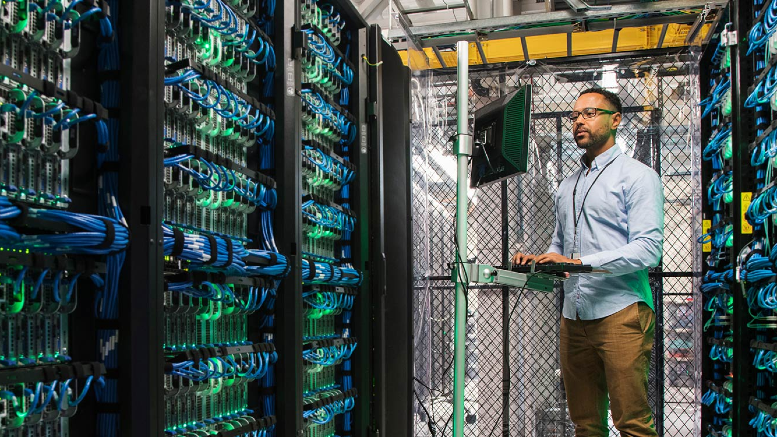Assessing the real value of private cloud for your business
May 8, 2024 / Unisys Corporation
Short on time? Read the key takeaways
- Private cloud involves cloud computing resources and services made available to a single person or organization. The private cloud experience can feel as comfortable as working on a personal computer, with apps, storage and processing power within easy reach.
- Custom-design security options and the fact that fewer bad actors will know of a private cloud can make private cloud potentially more secure than public cloud.
- Private cloud offers a guaranteed allotment of resources that can make it a preferred option to public cloud. Cost is also a consideration as private cloud can cost lost in certain situations.
Determining the best cloud for any situation can seem a bit, well, cloudy. But clarity is possible. When organizations want to keep their data close to home, private cloud offers an appealing alternative to public cloud.
Private cloud refers to cloud computing resources and services made available to a single person or an organization. Like public cloud, private cloud involves the hardware and software used for computing being run and managed in a data center, often on-premises. End-users then connect to those resources using a network like the internet, enabling organizations to reduce costs and enhance scalability and agility.
How does private cloud work?
A private cloud provides users with dedicated access to physical and software resources housed in a data center. The data center can be on-premises or remote. When you connect to the private cloud, you gain access to all the resources designated for your organization's use.
The architecture related to how to deploy private cloud often depends on virtualization. Virtualization involves using a single computer’s resources to provide IT services to multiple users. For example, suppose there’s a computer in a private cloud with a 20 TB hard drive. If 20 users want private cloud services, virtualization enables all 20 of them to use the same computer—as long as they don’t need more than 1 TB of storage each. Granted, the computer would need adequate processing capabilities in addition to storage space, but thanks to virtualization, one machine can serve several private cloud users.
A private cloud experience may feel like an extension of your personal computer in a business environment. All of the apps, storage and processing power you need are at your disposal. And if you want to upgrade an element of your experience, you can do so in a few hours or less—and at minimal cost.
What is a VPC?
Virtual public cloud (VPC) is a private cloud hosted within a public cloud. It consists of a collection of shared resources in a public cloud environment that can be configured so only specific customers can use them. In most situations, because resources can be allocated to your specific organization, working in a virtual public cloud will feel almost exactly like using a regular private cloud.
Is private cloud more secure than public cloud?
Private cloud has the potential to be more secure than public cloud because it’s private. Fewer people know it exists, so the number of potential attackers is greatly reduced.
Another security advantage is you can custom-design the security features you use within a private cloud. Security should be one of your primary considerations when considering how to implement private cloud. In most situations, your provider will have more than adequate security measures available, and all you have to do is choose the package that fits your needs.
However, these security advantages of private cloud don’t mean that public clouds are inherently insecure. Public cloud providers have robust security in place that can block a vast number of threats. But if you need to customize your security by using a favorite product, vendor or particularly stringent security mechanisms, opting for a private cloud may be a better decision.
When should you use private cloud?
One primary advantage of using private cloud instead of public cloud is a guaranteed allotment of resources dedicated to your organization. There’s no chance of other processes run by another company pulling from your processing power or storage space.
Another consideration when deciding whether to use private cloud services is cost. The expense associated with sourcing and purchasing on-premises computers and peripherals for employees can easily grow beyond the limits of your budget. However, with private cloud services, your monthly subscription fee can provide all you need to support many employees' computing needs.
Speaking of costs, if you need to use specific software, you may be able to spend less by using a private cloud service. For example, you may want to try a software solution for a few months but have to commit to a year-long subscription or even purchase the software outright if you’re doing it in-house. On the other hand, if you use a private cloud service that makes that software available, you can try it out for a couple of months, see if it works for you, and then move on to an alternative solution if it doesn’t suit your needs. In this way, you pay far less than you would have if you had procured the software in-house.
While there are advantages to using private cloud, the ideal solution for most organizations will be a combination of public and private cloud usage – called distributed cloud.
Explore how to maximize your private cloud benefits
Looking for strategies to optimize your use of private cloud? Cloud Management from Unisys can help ease your management of multi-cloud environments and containers. Contact us today and explore how you can operate more efficiently and cost-efficiently with managed public and private cloud and learn how Unisys’ private cloud experts can help you select the best solution for your unique business model.



















